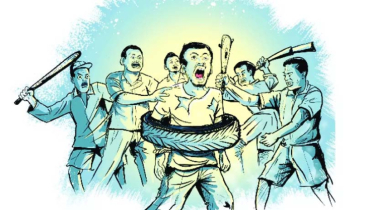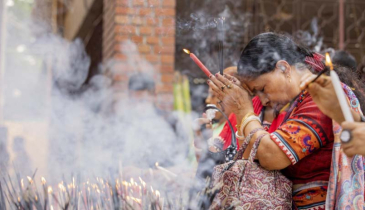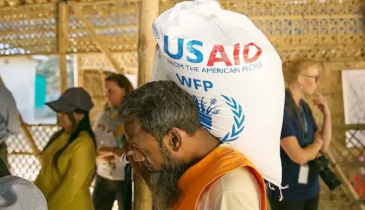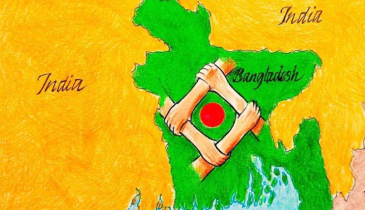Myanmar's Continued Struggle: Fourth Anniversary of the 2021 Military Coup
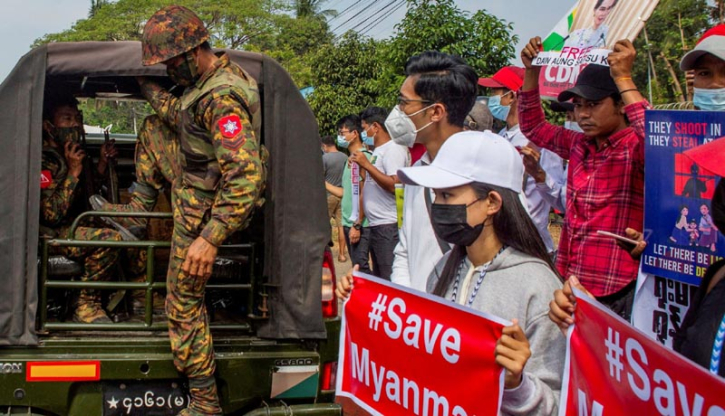
Myanmar finds itself deep in a state of violence, violations of human rights, and political repression as it marks the fourth anniversary of the February 1, 2021, military coup. The coup, led by Myanmar’s military junta, overthrew the democratically elected civilian government, detaining all members, including President U Win Myint and State Counselor Aung San Suu Kyi. This marked the abrupt end of the country's fledgling democratic governance, plunging Myanmar into a prolonged period of turmoil and unrest.
The violence and repression under the military junta have not only shattered Myanmar's democratic aspirations but also deeply affected its people, who continue to suffer in the face of an entrenched dictatorship. As Myanmar commemorates the fourth anniversary of the coup, the country remains in a state of profound crisis, with no immediate prospects for peace, justice, or the restoration of civilian rule. The ongoing struggle for democracy and human rights continues, even as the junta's grip on power shows no signs of loosening.
The Impact of the 2021 Coup and Ongoing Conflict
Since the coup, the situation in Myanmar has deteriorated drastically. Political repression has escalated, with the number of political prisoners rising sharply from 234 before the coup to a staggering 21,711 by January 30, 2025. These prisoners include not only government leaders but also activists, journalists, writers, and ordinary citizens who have resisted the military junta. Among the most concerning developments are the political executions, a practice that had not occurred in Myanmar since 1976. However, following the coup, the junta executed four political leaders, signaling an ominous shift toward further violent repression.
In addition to political imprisonment, the junta's brutal crackdown on dissent has resulted in extensive loss of life. As of January 2025, 6,224 civilians have been killed, with the toll including 1,387 women and 711 children. These figures reflect the harsh realities faced by ordinary people in Myanmar as they continue to resist an increasingly authoritarian regime. The deaths of so many innocent lives underscore the extreme measures employed by the military to maintain control over the country.
Economically, Myanmar has also seen a sharp decline since the coup. Under the civilian-led democratic administration, Myanmar's GDP grew to US$77.8 billion by 2020. However, following the military takeover, the country's GDP fell to $64.28 billion by 2024, reflecting the devastating impact of the junta's rule on the nation's economy. This decline has compounded the suffering of the people, with 15 million people (27.49% of the population) now facing the threat of starvation. Before the coup, only 2.8 million people (5.13% of the population) were considered food insecure.
Before the coup, reports of airstrikes in ethnic rebel-controlled areas were infrequent. However, following the military's seizure of power, the regime has launched at least 3,292 airstrikes, primarily targeting civilian areas. These airstrikes have resulted in the deaths of 1,749 people, highlighting the brutal tactics employed by the junta against both resistance groups and the civilian population. The airstrikes, combined with other forms of violence, have significantly contributed to the rise in the number of internally displaced persons (IDPs). The number of IDPs has soared from 370,000 before the coup to a staggering 3.5 million as of early 2025.
By January 31, 2025, ethnic rebel armies and resistance forces had almost seized control of 144 townships, while actively engaging the military in 79 other townships. However, the junta continues to maintain control over 107 townships, indicating that while the resistance has made considerable progress, the regime's grip on power remains significant.
As the humanitarian crisis deepens, the war between the military junta and resistance groups continues to rage. Various resistance organizations, including ethnic armed organizations (EAOs), People’s Defense Forces (PDFs), and other local defense forces (LDFs), have fought to overthrow the junta and establish a federal democracy. Since the coup, these opposition groups have made significant strides in challenging the regime. They have taken control of 742 frontline outposts, 173 military battalion headquarters, two regional commands, six command headquarters, and six strategic outposts, marking a stark contrast to the prior period of uncontested military rule.
Regional Influences and International Inaction
Despite the ongoing crisis, Myanmar’s military junta continues to hold power over the capital, Naypyidaw, and the majority of central Myanmar, including the key cities of Mandalay and Yangon. These areas remain firmly under the regime’s control, even as resistance groups make significant strides in challenging its rule. However, their progress has been severely hindered by the involvement of China, which has played an influential role in current peace talks and negotiations.
One notable shift in the landscape occurred on December 29, when the United League of Arakan/Arakan Army (ULA/AA), which had gained control over much of Rakhine State’s townships, announced its willingness to engage in political discussions under pressure from China. Other significant ethnic armed groups have also initiated peace talks with the junta. The Ta'ang National Liberation Army (TNLA) began talks with the regime on November 25, the Myanmar National Democratic Alliance Army (MNDAA) declared a truce on December 4, and the Kachin Independence Army (KIA) joined peace negotiations mediated by China. This shift indicates China’s growing influence in shaping Myanmar's political future, as it mediates between the junta and resistance groups.
The international community’s response has, so far, been weak and insufficient. The UN Special Rapporteur, Tom Andrews, has reported on the "Billion Dollar Death Trade in Myanmar," exposing the weapons networks that enable the military to commit atrocities. The report highlights the involvement of numerous companies from both European and Asian countries in sustaining the junta’s operations. This points to the urgent need for stronger international action to hold the junta accountable for its crimes, particularly the genocide and ethnic cleansing of the Rohingya.
Concrete steps are urgently needed to ensure justice for the Rohingya, to pressure the junta toward peace, and to support civil society organizations and people-led governance structures. Without decisive actions from the global community, Myanmar’s path to peace remains uncertain. As Myanmar's civil war continues and international attention wanes, its future will likely depend on the course of the civil conflict, China’s growing influence in the region, and the actions—or lack thereof—taken by ASEAN member nations. The geostrategic realignments of major powers may shape Myanmar's destiny, but for now, the country’s plight remains largely sidelined in global discussions as if the rest of the world does not care about democracy in Myanmar. -Source: daily asian age
.png)



